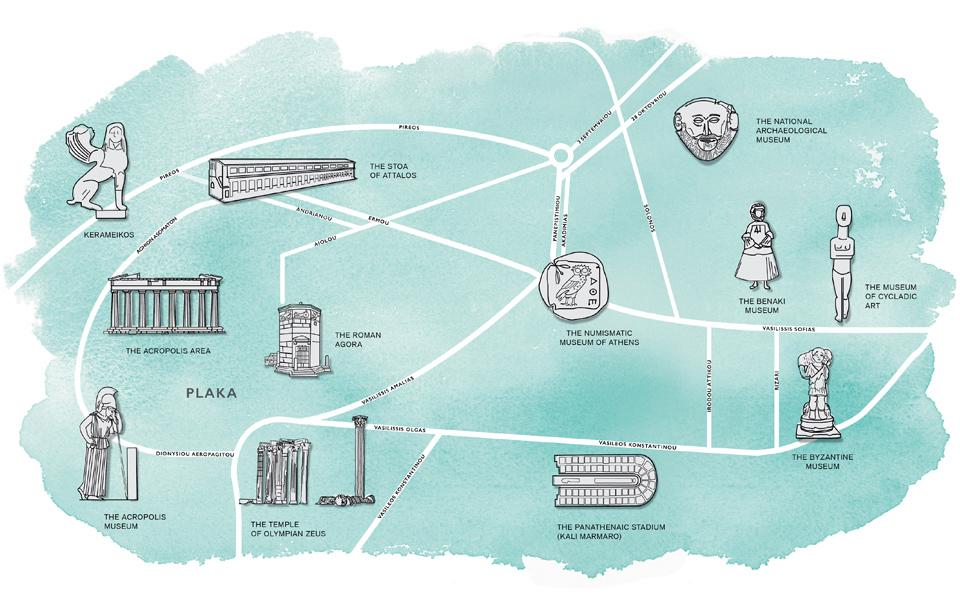ACROPOLIS AREA
The Sacred Rock… The place for history-rockin’ visitors! Athena’s Parthenon tops the bill, backed up by the Erechtheion, the Propylaia and the stunning little Temple of Athena Nike. Around the slopes, make sure to see the Theater of Dionysus, the Sanctuary of Asclepius, the Odeion (music hall) of Herodes Atticus and the cave shrines to the ancient gods. On the adjacent Areopagus, Saint Paul gave one of his most powerful anti-pagan speeches
THE ACROPOLIS MUSEUM
What is the Acropolis without the Acropolis Museum? It’s a required stop that complements every tour of the Sacred Rock, whether you’re interested in sculpture, architecture, mythical creatures, bronze weaponry, ancient magic, or painted vases that tell the life stories of Athenian women. Here you’ll find the Parthenon’s exquisite decorations and the elegant Caryatid ladies in a building that’s already a modern classic.
INFO
ACROPOLIS AREA
Tel. (+30) 210.321.4172 • Open daily: 8:00-16:30 (winter) • Admission: €10 (There is also a €30 ticket allowing admission to all main archaeological sites in Athens)
ACROPOLIS MUSEUM
15 Dionysiou Areopagitou • Tel. (+30) 210.900.0900 • www.theacropolismuseum.gr
• Admission: €5 • Open: Mon-Thu 9:00-17:00, Fri 9:00-22:00, Sat-Sun 9:00-20:00 (winter)
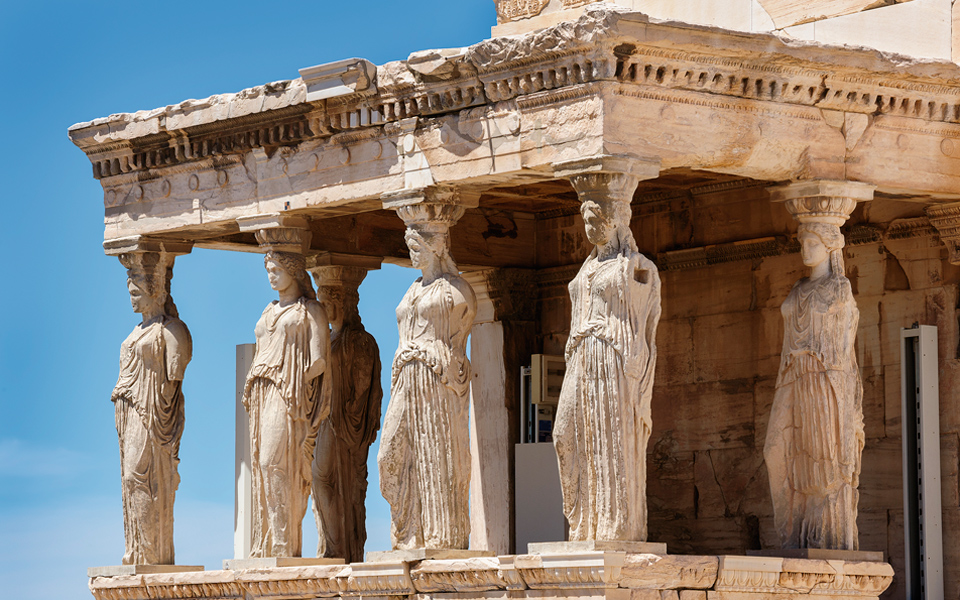
© Shutterstock
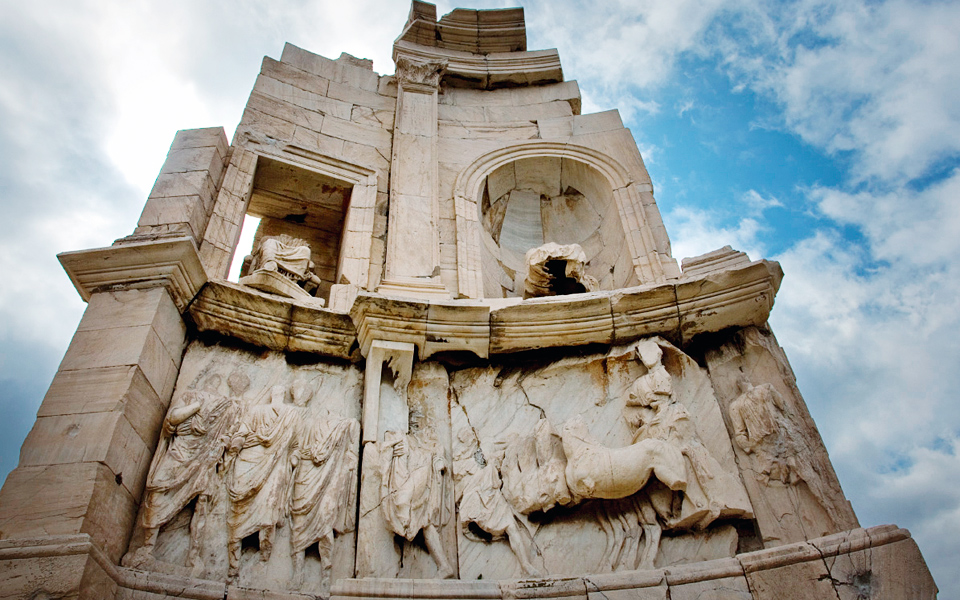
© Perikles Merakos
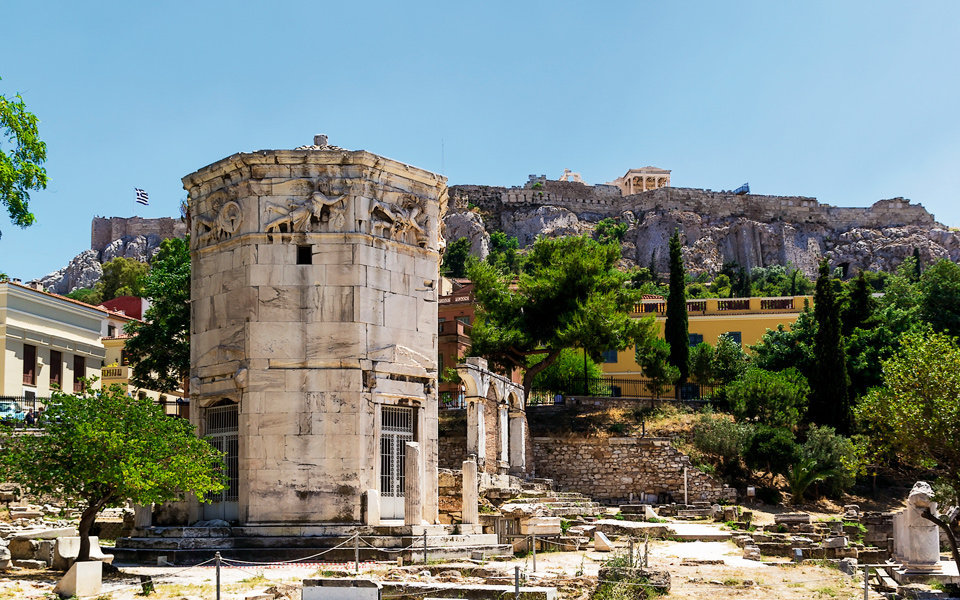
© Shutterstock
INFO
AGORA & MUSEUM
24 Adrianou • Tel. (+30) 210.321.0185 • Open daily: 8:00-15:00 (winter) • Admission: €4
The Southwestern Hills
Southwest of the Acropolis rises the Pnyx Hill, with the open-air assembly area for the People’s Assembly (Ekklesia). On this spot, ancient Athenian politicians played to the crowds, delivering fiery speeches from the rock-cut rostrum overlooking the Sacred Rock and the Athenian Agora. On the adjoining Hill of the Muses stands the Philopappos Monument, a prominent tomb for an exiled foreign ruler.
The Athenian Agora
This was the heart of ancient Athens, the city’s central square, market place and governmental hub, where everyone, high or low, passed through, shopped, reported for jury duty, watched street performers and offered sacrifices, rubbing shoulders with the likes of Themistocles, Pericles and Socrates. The pristine Temple of Hephaistos and Athena marks the old metalworkers’ district, while the reconstructed Stoa of Attalos today houses the Museum of the Ancient Agora.
The Museum of the ancient agora
The daily activities of ordinary citizens and artisans in the Athenian Agora are the focus of this informative exhibition within the reconstructed 2nd c. BC Stoa of Attalos. Don’t miss the warrior’s tomb with the “killed” sword; the eyelets and hobnails from Simon the Shoemaker’s House (which Socrates frequented); the jury-selection machine; and the pot-shard ballots nominating Themistocles and other famous figures for ostracism.
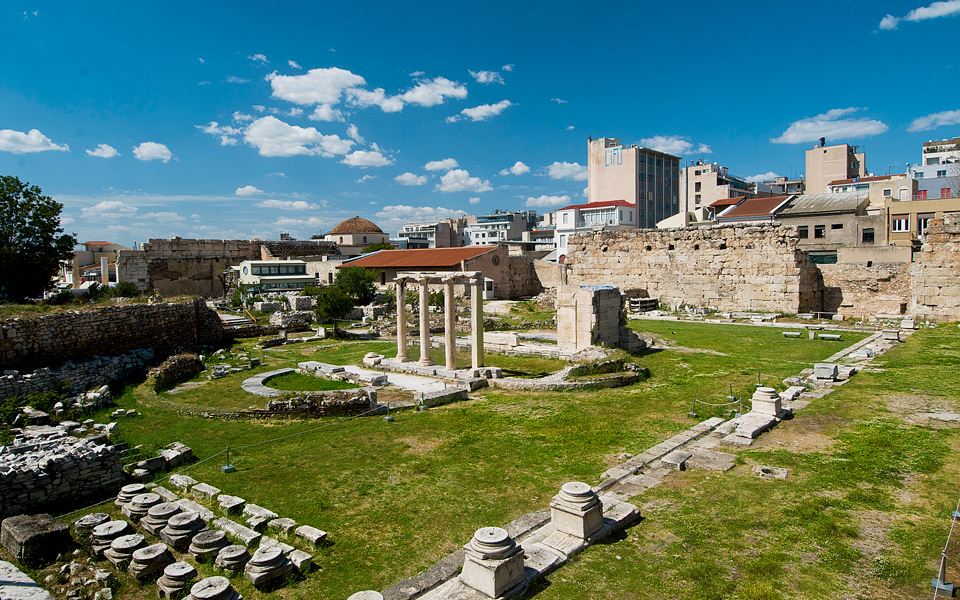
© Perikles Merakos
The Roman Agora
The Romans revitalized Athens’ city center with a new market place, funded by Julius Caesar and Octavian (Augustus). Once a hangout for merchants, shoppers and semi-literate prostitutes who left messages scratched on the square’s columns, the area is visit-worthy today for the Tower of the Winds, an ornate Ottoman-era seminary gateway and the newly restored Fethiye Mosque (17th c.), now open to visitors.
The City of Hadrian (Hadrianopolis)
A new area of the city, added by the Hellenophile Roman emperor Hadrian. One entered this suburb through the Arch of Hadrian, beyond which towered the mammoth Temple of Olympian Zeus. The Illissos River area, with all its shrines and lush vegetation, made this district a pleasant place to stroll.
Plaka
Hadrian also contributed a new forum (agora) equipped with a library. The courtyard of the Library of Hadrian went on to host two early Christian churches. On the Acropolis’ eastern slope one finds the Lysikrates Monument, commemorating a theatrical victory at the nearby Theater of Dionysus. Lord Byron once used the base of this hollow trophy-stand as a private study.
INFO
THE ROMAN AGORA
Pelopida, Plaka • Tel. (+30) 210.324.5220 • Open daily: 08:00-17:00 (winter) • Admission: €3
OLYMPIEION
Entrance from Vassilissis Olgas Avenue • Tel. (+30) 210.922.6330 • Open daily: 8:00-15:00 (winter) • Admission: €3
THE LIBRARY OF HADRIAN
3 Areos, Monastiraki • Tel. (+30) 210.324.9350 • Open daily: 8:00-15:00 (winter) • Admission: €2
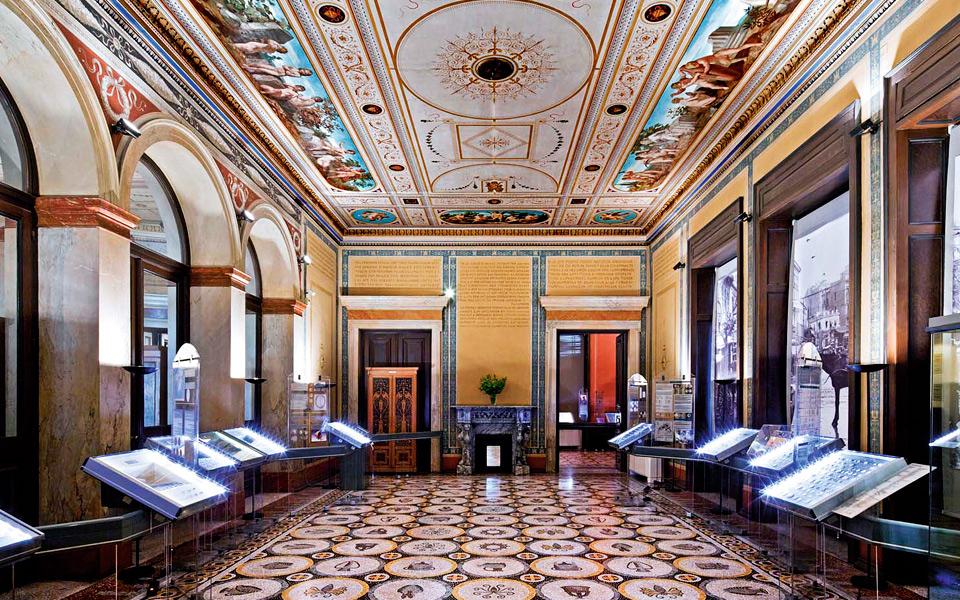
© Katerina Kampiti
INFO
KERAMEIKOS
148 Ermou • Tel. (+30) 210.346.3552 • Open daily: 08:00-15:00 (Museum closed on Mondays) • Admission: €4
PANATHENAIC STADIUM
Vasileos Konstantinou Avenue (opposite the statue of the Discobolus of Myron) • Tel. (+30) 210.522.9846 • Open: November-February: 08:00-17:00, March-October: 08:00-19:00 • Admission: €5
THE NUMISMATIC MUSEUM OF ATHENS
12 Panepistimiou • Tel. (+30) 210.363.2057 • Open: Mon: 12:00-20:00, Tue-Sun: 09:00-16:00• Admission: €3
Kerameikos
The northwestern corner of the ancient walled city. From here, through the Dipylon and Sacred Gates, Athenians could reach the State Burial Ground or join the annual procession to Eleusis. The wooded Academy of Plato also lay outside the walls. Potters, prostitutes, mourners and soldiers all frequented this once-busy area.
Panathenaic Stadium
The stadium for Athens and for the Panathenaic Games was built in the 4th c. BC by Lykourgos, but given a complete marble makeover by Herodes Atticus some 500 years later. In 1896, the first modern Olympics were hosted here. Truly a place of historic and athletic glory!
THE NUMISMATIC MUSEUM OF ATHENS
Once the home of Heinrich Schliemann, the father of Greek archaeology, this impressive mansion now hosts the Numismatic Museum. With its richly painted walls, decorative marble floors and stunning displays of gold, silver and bronze coins, this is the place to appreciate the wealth of both ancient and modern Athens.
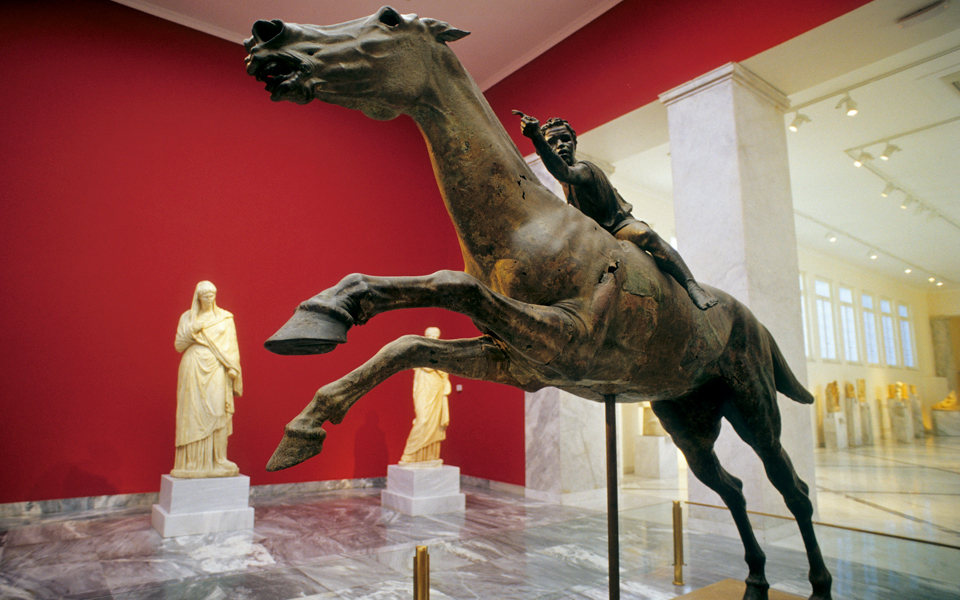
© Clairy Moustefellou
The National Archaeological Museum
A top destination in the city, where you’ll find extraordinary bronze and marble sculptures; golden artifacts from the Mycenaean palaces; an exhibition on Santorini’s prehistoric, ash-entombed town of Akrotiri; and an extensive collection of black- and red-figure vases with painted scenes of gods, heroes, favorite myths and fascinating glimpses into ancient daily life.
The Byzantine Museum
Housed in the Villa Illissia, another 19th-century Athenian architectural treasure that served as the winter palace of the Duchess of Plaisance, a French-American Hellenophile, the BCM showcases the splendor and far-reaching influence of Byzantine culture.
The Museum of Cycladic Art – The Benaki Museum
Two great Athenian museums, located not far apart, one focused on the ancient culture of the Aegean and the other boasting an evocative collection of ancient, medieval and Greek Revolution-era and early modern art objects and artifacts, giving the visitor an overview of the full spectrum of Greece’s history and civilization. (The Benaki Museum also has annexes for Islamic art and contemporary art at two other locations.)
INFO
THE NATIONAL ARCHAEOLOGICAL MUSEUM
44 Patission • Tel. (+30) 213.214.4800 • Open: Mon: 13:00-20:00, Tue-Sun: 09:00-16:00 (winter) • Admission: €5
THE BYZANTINE MUSEUM
22 Vasilissis Sofias • Tel.(+30) 213.213.9500 • Open: Tue-Sun: 9:00-16:00; Mon: closed • Admission: €4
THE MUSEUM OF CYCLADIC ART
4 Neophytou Douka, Kolonaki • Tel. (+30) 210.722.8321-3 • Open: Mon, Tue, Fri, Sat: 10:00-17:00, Thu: 10:00-20:00, Sun: 11:00-17:00 • Admission: €7
THE BYZANTINE MUSEUM
1 Koumpari, Kolonaki • Tel. (+30) 210.367.1000 • Open: Thu, Sat: 10:00-24:00, Wed, Fri: 09:00-17:00, Sun: 09:00-13:00 (Closed: Mon, Tues) • Admission: €9

